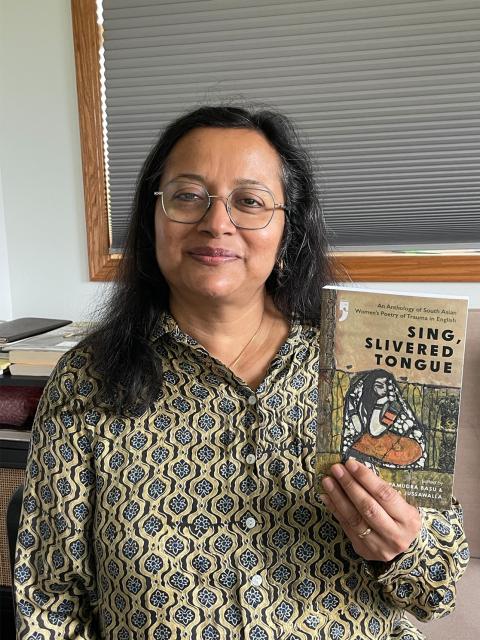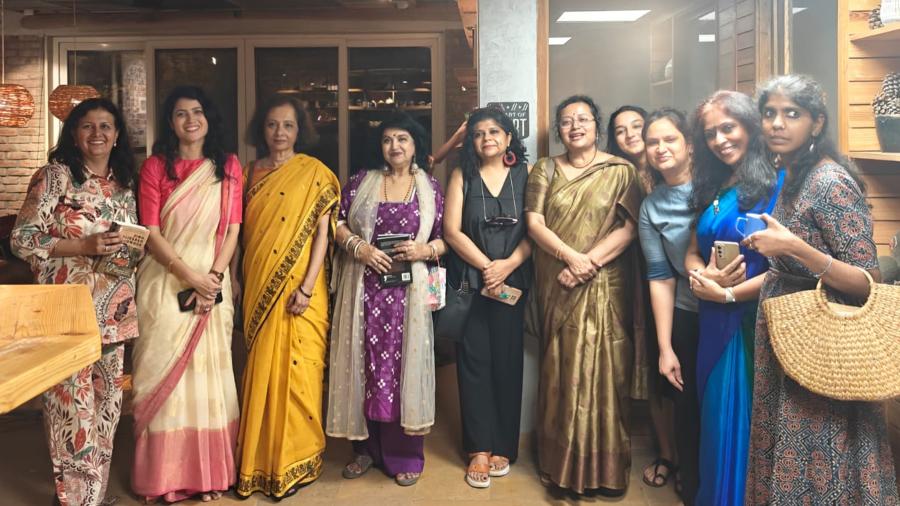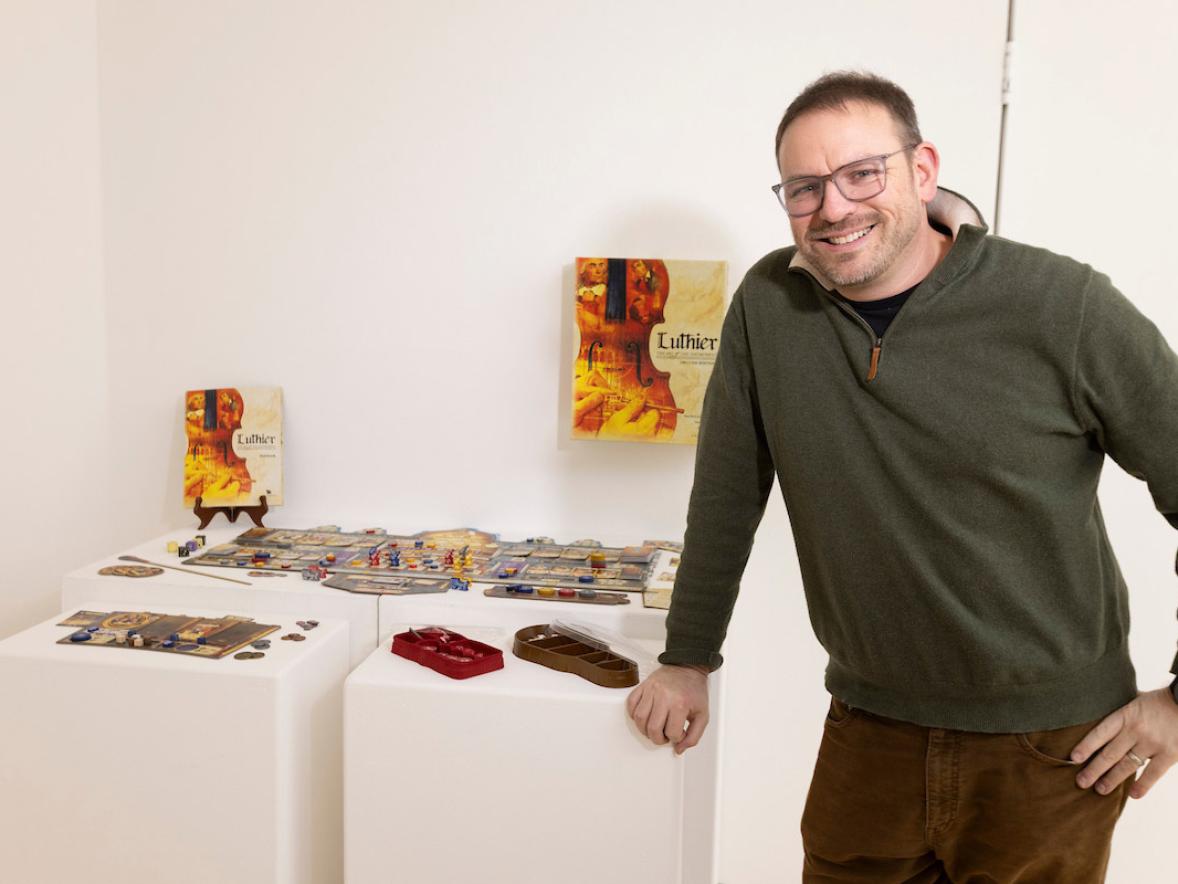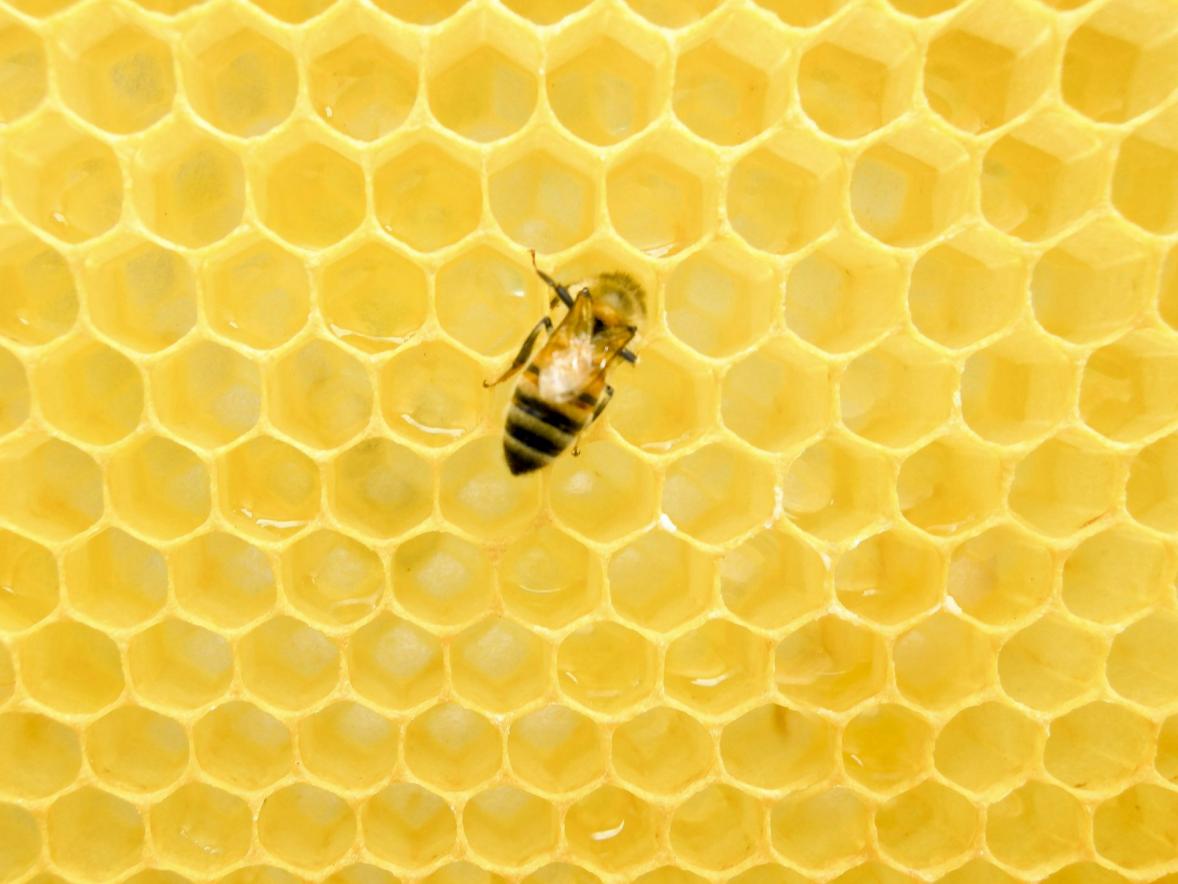Trauma, particularly that of women, has typically been relegated to silence and oblivion. A new book of poetry, “Sing, Slivered Tongue,” sheds light on the subject of trauma and gathers the voices of 68 women from various South Asian communities.
Co-edited by UW-Stout English Professor Lopamudra Basu and Professor Emerita Feroza Jussawalla, University of New Mexico, the anthology explores trauma through a gendered lens.
“‘Sing, Slivered Tongue’ is not just a litany of trauma. It is a statement of courage. It offers hope and is an attempt to find resolution,” Basu said. “Although the poets are from South Asia, their experiences are global experiences, and our intention is to create bridges.”

Trauma is broadly defined, she noted. The poets’ identities and experiences within the anthology, although focusing on gender-based trauma, also cover themes ranging from personal, political, and historical trauma to religious, ethnic and class-based violence.
Basu wanted to create the anthology because she feels there is a dearth of poetry in the contemporary literary world, particularly for women and international poets.
“Narratives, novels and short stories get more attention. Poetry is thought to be more difficult or hard to access and gravitate to,” she said.
She hopes that readers will be able to see the possibilities created through the short, accessible poems – and that small moments, losses, and triumphs can be preserved and call people back to their own experiences.
Basu will present on her book as part of the Chippewa Valley Book Festival at 6 p.m. on Friday, Oct. 24, at the Riverview Room at L.E. Phillips Library in Eau Claire and virtually. The hybrid event will include several contributing poets joining via Zoom. Books will be available for purchase at local bookstores this fall.
Read four excerpts from “Sing, Slivered Tongue” in the webzine Scroll.in.
“Sing, Slivered Tongue” was published by Yoda Press in May 2025. Basu is the author of “Ayad Akhtar, the American Nation and its Others After 9/11: Homeland Insecurity,” Lexington Books, 2018; and the co-editor of “Passage to Manhattan: Critical Essays on Meena Alexander,” Cambridge Scholars Publishing, 2009.
‘Sing, Slivered Tongue’
The anthology’s title refers to Khona, a legendary astrologer and poet who composed in the medieval Bengali language between the ninth and 12th centuries AD. Hers is among the earliest literature in Bengali, and her prophecies, which largely focused on agriculture, had a huge following. Khona’s popularity provoked the jealousy of her father-in-law, who cut out her tongue so she could no longer speak her prophecies. Her story has lived on, however, passed down through generations.
As opposed to a golden voice or a silver tongue, a slivered tongue evokes a sense of vulnerability and suggests a voice that might be damaged or broken, yet still capable of expressing itself, often in a powerful or moving way.

Basu has researched the subject of trauma in her writing and understands that the typical response to trauma is to bury it.
“This is what happened after the Partition, when British rule ended in 1947, and there was a forceful political separation of India and Pakistan,” Basu said. “And in the separation of Bangladesh in 1971, and the nearly three-decades-long civil war in Sri Lanka, beginning in the 1980s.
“Anger, physical and sexual violence were played out on the bodies of women and their stories were never told, or only very marginally. The overwhelming response was to censor these women’s stories. And even then, it was the victims who were made to feel ashamed,” she added.
Only after decades have passed have historians begun to collect and recapture South Asian women’s stories before an entire generation is gone. And movements and protests in support of women’s rights are demanding justice and action, Basu said.
Personal trauma can stem from power struggles in relationships, difficulties in marriage or divorce. It can center around grief and the loss of a family member. Basu’s own poem, “White Roses,” speaks of the loss of her father and how COVID impacted her life. During the pandemic, she was here in Wisconsin, while her family was in India.
“The COVID lockdowns in India were draconian. My dad was a very sociable person, but he died alone in the hospital away from us all. We had no closure and no possibility of a ceremonial funeral,” Basu said. “As firstborn, according to Hindu ritual, I should have been allowed to light his funeral pyre. Instead, he was cremated by the Kolkata Municipal Corporation, with only my sister being able to witness the cremation from a distance. It was very inhumanely handled. I cared for my mother from a long distance.”
Basu started her career as a scholarly writer, but in her middle age, has become a poet, she said. “I believe that poetry is something that everyone can have in their life. Poetry is fun, and unlike a novel, you can pick and choose to read what you like within a book.
“A poem is like a flower that opens to reveal its meaning to you. Maybe you miss its meaning the first time, but gradually it will become known to you if you have the patience to come back to it,” she said.
Basu participated in in-person book launches in India this summer. At the University of Engineering and Management’s Center for Excellence in Literature, Language and Communication Skills in Kolkata, she took part in a panel discussion on “The Role of Poetry in Bearing Witness to Trauma.” Several eminent Kolkata poets read their poetry at the event. And in Delhi, Yoda Press hosted a poet's reading. Basu and Jussawalla also virtually joined a panel discussion at the Hyderabad Literature Festival on Aug. 8.







